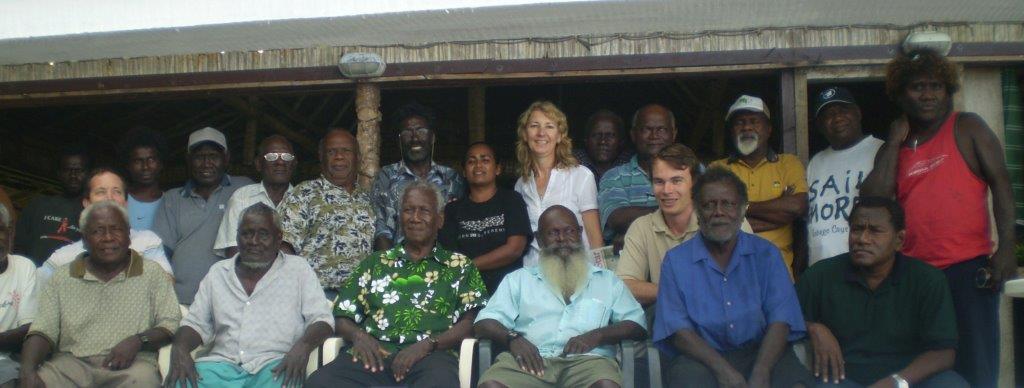Collaborating with international researchers and non-government organisations, The University of Queensland’s Professor Jennifer Corrin is working to find solutions to the problems that arise from legal pluralism – the co-existence of different legal systems within one social field.
With a focus on the South Pacific region, in particular Solomon Islands, Papua New Guinea, Vanuatu, Samoa and the Torres Strait, Professor Corrin’s research has been influential in highlighting the issues facing the region and making the law more accessible to scholars, practitioners and policy makers.

Professor Corrin, Director of Comparative Law in the Centre for Public, International and Comparative Law at the TC Beirne School of Law and former ARC Future Fellow, said legal pluralism was not confined to developing nations.
“Much of the early literature focussed on legal pluralism as a consequence of colonialism,” she said.
“However, it is increasingly being recognised that the existence of more than one legal system in the same social sphere is the norm rather than the exception.”
In August, she will bring together a panel of experts together to discuss the legal status and identity of Indigenous peoples at the International Conference of the Commission on Legal Pluralism in Ottawa.
This work is supported by Canada’s Social Sciences and Humanities Research Council.
Professor Corrin said the question of identity was complex and typical of the issues presented by legal pluralism.
“‘Belonging’ may be regarded as a matter of descent, domicile, acceptance by the community, self-identification or a combination of those ideas,” she said.
“Rules that govern membership of Indigenous groups differ widely from country to country, state to state and even village to village.
“This has broad repercussions, leading to a range of social, economic and environmental issues for Indigenous people locally and globally.
“This a difficult question to address. People tend to view the question through either a state lens or a customary lens and the two sides are not in dialogue.
“It may be that multiple definitions are required, depending on context, but this needs to be decided by indigenous peoples rather than the State.”
At the conference, Professor Corrin will present her own her research on who qualifies as a ‘traditional inhabitant’ under the The Torres Strait Treaty between Australia and Papua New Guinea.
Professor Corrin said ‘traditional inhabitants’ are defined by the Treaty, but the relevant provision is ambiguous and the question of who is within the terms of the Treaty is highly contentious.
“The problem is exacerbated by the competing layers of law which govern the Straits and surrounding Borderlands, and by the dissonance between state law, customary laws, and the practical application of the Treaty,” she said.
To help tackle the ongoing issue, Professor Corrin has spearheaded a network of UQ researchers with expertise in the Pacific to support reform on economic, environmental, human rights and social and cultural issues in the South Pacific.
“The Pacific region is of ever increasing interest to our own government and to the world at large,” she said.
“It currently faces significant challenges from both natural events and man-made problems.
“The University’s Pacific experience and geographic proximity to Pacific Island nations, puts us in an ideal position to capitalise on our strengths and increase our levels of engagement in the region by assisting the Pacific to combat these challenges.”
Professor Corrin is also involved in the coordination of the UQ Solomon Islands Partnership, which promotes further engagement in the region and has led to a formal institutional Memorandum of Understanding in 2014 between Solomon Islands National University and The University of Queensland.
Professor Corrin’s other research projects include the investigation of the formal place of French law in Vanuatu and the reasons why French law is rarely applied.
The research, which attracted funding from L’Agence Universitaire de la Francophonie (AUF), also considers ways in which the application of French law might be enhanced in the region.
Find out more about Professor Corrin’s work.
Media: Professor Jennifer Corrin, j.corrin@law.uq.edu.au, +61 7 3365 2295 or Caroline Enright, media@law.uq.edu.au , +61 7 3365 5296.



